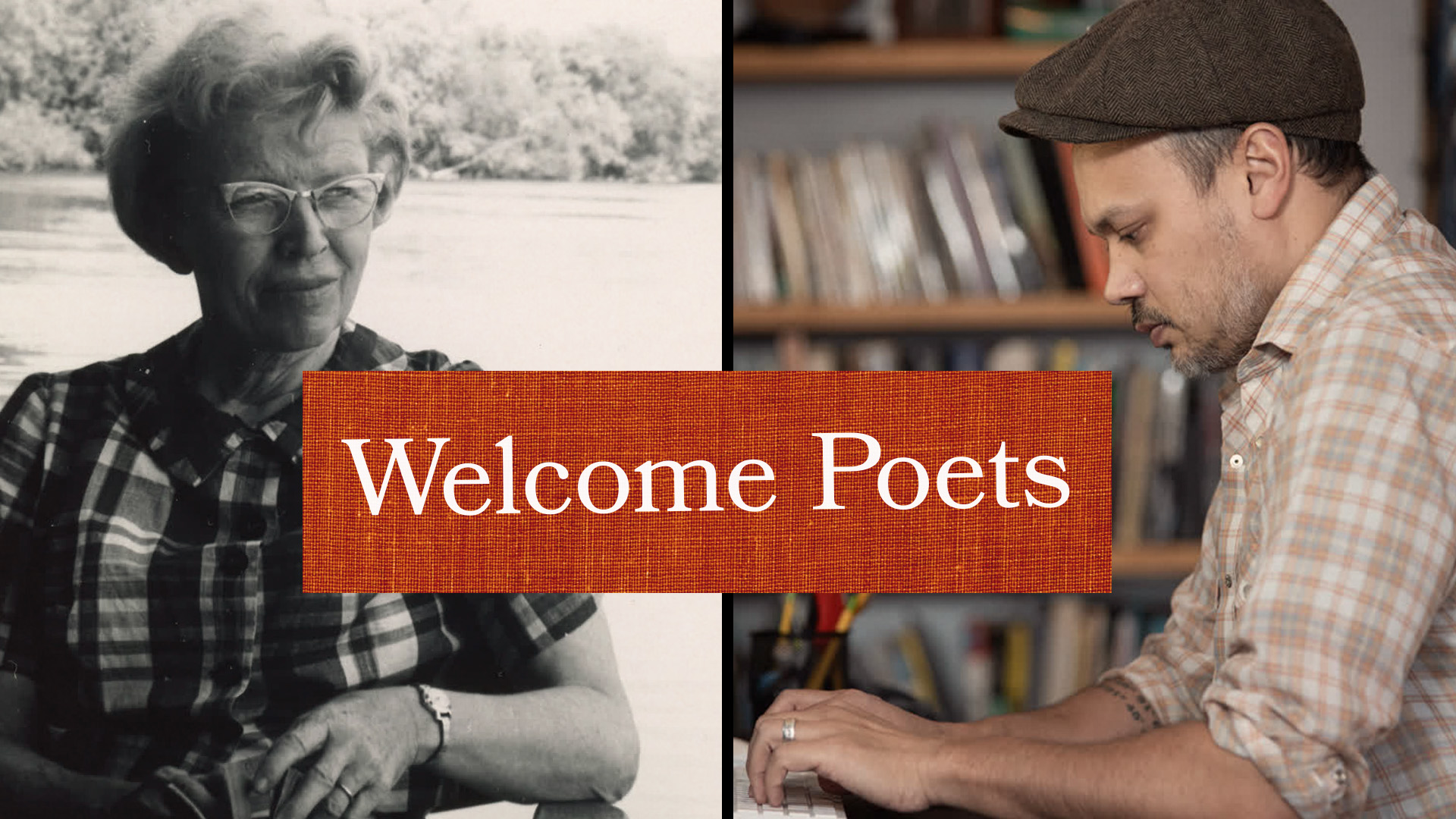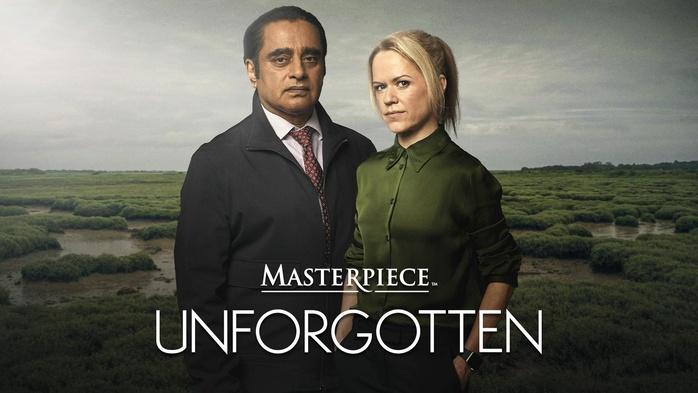Dave Iverson: What follows is a journey to a place that’s about as far away as you can get and still be in the state of Wisconsin. It’s called Outer Island, and it is part of the Apostle Island National Lakeshore. The island is home to one lighthouse. A lighthouse that punctuates the horizon like an exclamation point. And it’s home also to one person: Anna Marie Lux. We call our story “Keeper of the Light.” Produced by Mark Weller.
[herring gull keowing]
Narrator: When was the last time you saw the sun peek over the horizon? It’s a simple act as old as time, yet one few of us notice.
Anna Marie Lux: Being able to see the sunrise, the sunset, and the moon come up all in the same day. It’s not very often when we live in the city that we experience that. Here, it’s very common fare.
Narrator: Common fare to Outer Island, part of the Apostle Islands National Lakeshore, home to a million trees, a lighthouse, and Anna Marie Lux. Welcome to life in the slow lane.
[birds chirping animatedly]
Anna Marie Lux: This is my own Thoreau experience. I don’t have a cabin in the woods. Instead, I have a lighthouse. I’m not living in New England. Instead, I have Outer Island.
[water rushing]
Narrator: And Lake Superior becomes Walden North. Here, Anna Marie Lux spends her summer inhabiting the island, tending the lighthouse. She gave up her job as a newspaper reporter in Janesville, as well as indoor plumbing and electricity, to become a National Park Service VIP. VIP is short for Volunteers In the Parks. Lux is part of a small yet dedicated group that donates their time to the National Park Service. For this, they get a place to sleep, $2.50 a day, and all the wilderness they can absorb.
Anna Marie Lux: I came out here because it’s very seldom, I believe, that any of us get a chance to be by ourselves on a very remote, very wild island and can stand on that island and be fairly certain that we’re the only human being in that place at that time. That’s a very unique feeling.
Narrator: The island lies 27 miles off the Bayfield Peninsula. Beyond the lighthouse is nothing but 10% of the world’s fresh water.
Anna Marie Lux: Outer Island is the furthest from land of all the islands in the national lakeshore, and because of that, it receives the fewest visitors. And therefore, I will go days, maybe even a week or so, without anybody coming here.
Narrator: The only human prints in the sand are put there by Anna Marie Lux.
Anna Marie Lux: I look around at things with a great childlike wonderment, and sometimes I feel like I’m 10 years old. Sometimes, I can be Robinson Crusoe.
[wheelbarrow bouncing against ground]
Narrator: But Anna Marie Lux has responsibilities quite unlike characters from Daniel Defoe’s books. In this chapter, it’s time to rake the lawn.
Anna Marie Lux: My time is spent mostly maintaining the grounds and maintaining trails.
Narrator: In addition to some light housekeeping, which is not to be confused with lighthouse keeping, Lux each morning reports weather information to the park service.
Anna Marie Lux: I check my weather station. I find out what the high and low was yesterday, find out what the temperature is right now. I get the flag, I put the flag up. That’s usually a pretty good indicator of wind direction.
Narrator: Each morning at 8, Lux goes to the top of the tower, where radio reception is best. Human contact, via the wireless.
Radio Operator: Attention: Crew of Outer Island, Bayfield.
[presses transmit button]
Anna Marie Lux: Outer Island 722 reporting. Sunny skies, 62, southwest wind less than 5 knots, waves less than a foot at the dock. Break.
[releases push-to-talk button]
Narrator: But in the summer, the days on Outer Island are far from packed with Park Service responsibilities. There is still plenty of time to watch the butterflies in the hawk weed, plenty of time to listen to the loons in the bay.
[loon wailing]
Narrator: In the midst of 8,000 acres of pristine wilderness in the most remote section of Wisconsin, surprisingly, Lux doesn’t feel lonely.
Anna Marie Lux: You can be alone, totally alone, on an island like this, and not be lonely.
[birds chirping]
Anna Marie Lux: When you’re surrounded by all of the animals and the bird life, especially on Outer Island, there’s — you — you just — you can’t, you cannot feel alone. You cannot feel lonely.
Narrator: Lux is a writer by profession. She records each day’s events in a journal. Here are impressions from her first day on Outer Island.
Anna Marie Lux: The first thing you notice is the quiet. Not the absence of noise but the complete lack of all that’s civilized. Traffic, engines, conversation, sirens, the sounds of people… gone.
[water current]
Anna Marie Lux: Replaced instead with a steady rhythmic lap of waves on the shore. The sound of water on stone, water on sand, water on driftwood.
[water lapping shore]
Narrator: The only hint of civilization is the light tower and adjoining house. It is the single feature of the island engineered by human hand.
Anna Marie Lux: This light is still actively working and still guiding sailors safely to shore, just as it did when it was first built in 1874.
Narrator: It may be an old light, but it still holds court daily for the boats that pass by. Old traditions maintained by new methods.
Anna Marie Lux: It’s an automatic light that runs off of solar-powered batteries.
Narrator: The light is smart enough to go on and off without help from Anna Marie Lux. Yet, while the inner mechanics have modernized, some things have remained constant since 1874. The view at 130 feet is still magnificent.
Anna Marie Lux: When I get to the top of the tower, I can see a good portion of the island to the south. I can see the trees in the wilderness. Some of the trees are estimated to be more than 300 years old. When I look to the north, I can see the great expanse of Lake Superior. Oftentimes, I can see ore boats passing by on their way to Duluth.
Narrator: You can still imagine yesterday’s sailors seeing the light and recalling the words to that old American hymn. I once was lost, but now I’m found And more often than not, it was a woman manning the tower, trying to guide the tempest-tossed to safe harbor.
Anna Marie Lux: Just in terms of being lighthouse keepers, women have been doing that for centuries. And they’ve kept the fires burning. They’ve kept the lights lit. During storms, during the fog, they were up there, and they were doing it. There’s nothing unique about the fact that I’m a woman.
Narrator: But today, the historic lighthouse still stands, and Anna Marie Lux is the link to those who have lived here before. Consider the poem by Edgar Guest: [reciting The Lighthouse Keeper Wonders] “The light I’ve tended for 40 years is now to be run by a set of gears, but will ever that automatic thing plant marigolds in the spring?” We don’t know if marigolds bloomed every summer since 1874 on Outer Island. But thanks to Anna Marie Lux, they did bloom this summer.
Anna Marie Lux: I hope that, in some small way, I’ve been able to carry on this romantic tradition.
Narrator: The view of the sunset from here lives up to the namesake of the lake: superior. If there is a message in Anna Marie’s summer on Outer Island, it is this: The sun rises and sets every day. Take a few minutes and watch it. You may not make a living at it, but it will definitely leave you richer.
[waves lapping shore]
Search Episodes

Donate to sign up. Activate and sign in to Passport. It's that easy to help PBS Wisconsin serve your community through media that educates, inspires, and entertains.
Make your membership gift today
Only for new users: Activate Passport using your code or email address
Already a member?
Look up my account
Need some help? Go to FAQ or visit PBS Passport Help
Need help accessing PBS Wisconsin anywhere?

Online Access | Platform & Device Access | Cable or Satellite Access | Over-The-Air Access
Visit Access Guide
Need help accessing PBS Wisconsin anywhere?

Visit Our
Live TV Access Guide
Online AccessPlatform & Device Access
Cable or Satellite Access
Over-The-Air Access
Visit Access Guide
 Passport
Passport






Follow Us